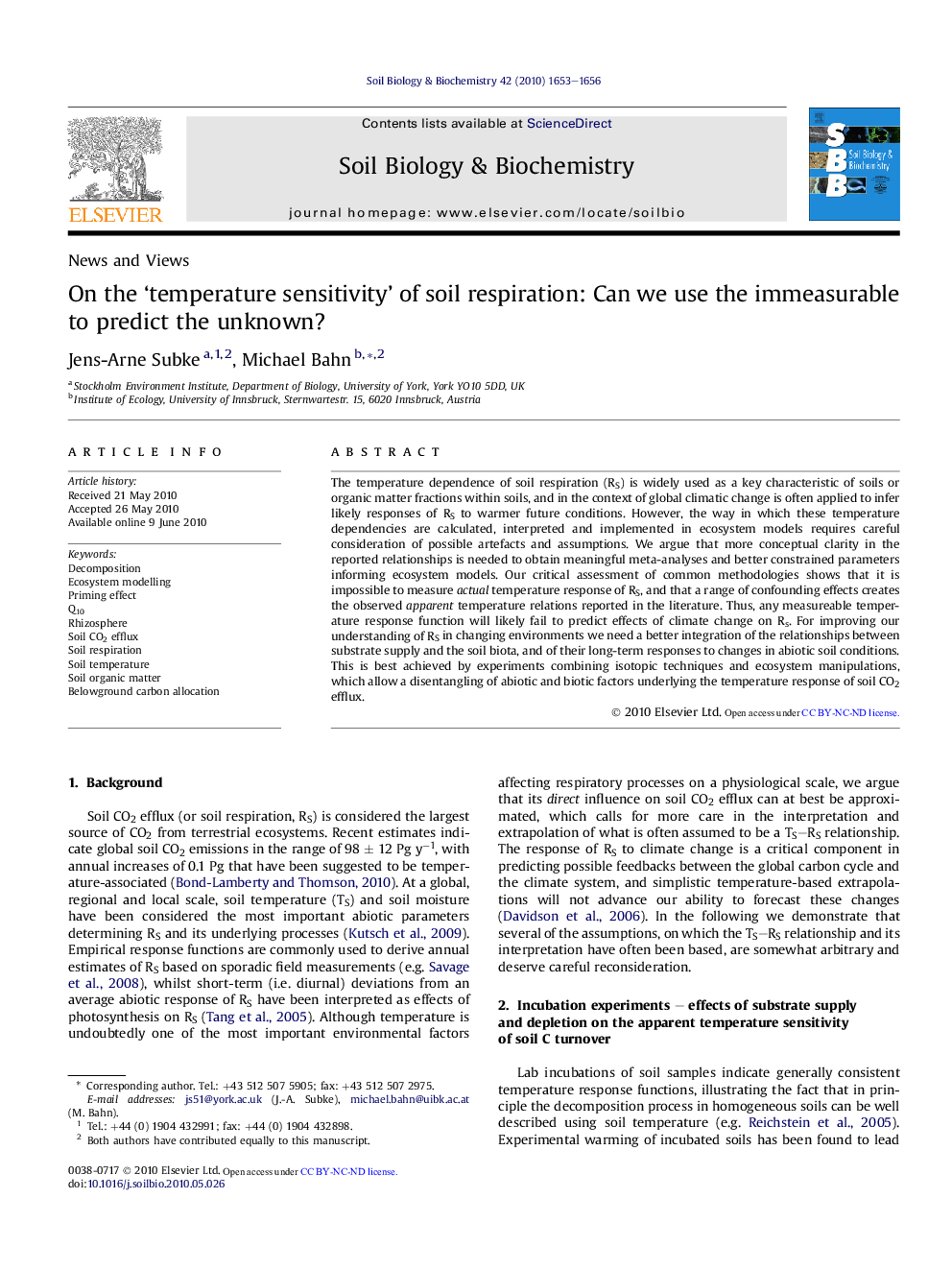| Article ID | Journal | Published Year | Pages | File Type |
|---|---|---|---|---|
| 10846140 | Soil Biology and Biochemistry | 2010 | 4 Pages |
Abstract
The temperature dependence of soil respiration (RS) is widely used as a key characteristic of soils or organic matter fractions within soils, and in the context of global climatic change is often applied to infer likely responses of RS to warmer future conditions. However, the way in which these temperature dependencies are calculated, interpreted and implemented in ecosystem models requires careful consideration of possible artefacts and assumptions. We argue that more conceptual clarity in the reported relationships is needed to obtain meaningful meta-analyses and better constrained parameters informing ecosystem models. Our critical assessment of common methodologies shows that it is impossible to measure actual temperature response of RS, and that a range of confounding effects creates the observed apparent temperature relations reported in the literature. Thus, any measureable temperature response function will likely fail to predict effects of climate change on Rs. For improving our understanding of RS in changing environments we need a better integration of the relationships between substrate supply and the soil biota, and of their long-term responses to changes in abiotic soil conditions. This is best achieved by experiments combining isotopic techniques and ecosystem manipulations, which allow a disentangling of abiotic and biotic factors underlying the temperature response of soil CO2 efflux.
Keywords
Related Topics
Life Sciences
Agricultural and Biological Sciences
Soil Science
Authors
Jens-Arne Subke, Michael Bahn,
